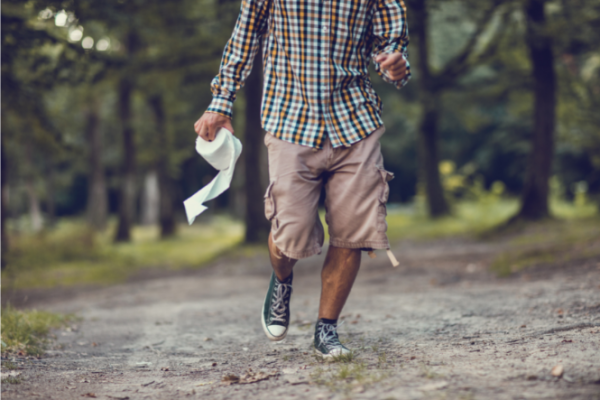If you're a frequent visitor to Healthify, why not share our site with a friend? Don't forget you can also browse Healthify without using your phone data.
Diarrhoea – how to manage at home and when to get help
Also known as watery poos or rererere
Key points about diarrhoea
- Diarrhoea is when your poos become runny or you have to go a lot more often.
- It's very common in adults and children.
- It usually goes away on its own, but if you have the symptoms described below you need to seek medical advice.
- Diarrhoea (runny poo), with or without respiratory symptoms, such as a cough, fever, or runny nose, could also be a COVID infection.
- Test for COVID-19 and stay home until well or you're sure this isn’t COVID.

DO
- test for COVID:19
- keep up your fluid intake to avoid getting dehydrated, try to drink small amounts of water often
- get plenty of rest
- take paracetamol if you also have a fever or stomach pain
- take oral hydration salts if needed (these are available at local pharmacies without prescription)
- take care to prevent the spread of diarrhoea – regular and thorough hand washing is important.
DON’T
- don’t give anti-diarrhoeal medicines to babies or children
- don't eat fatty, oily or sugary food and drinks
- don't drink undiluted fruit juices
- don't drink tea, coffee and alcohol.

Image credit: Canva
|
When to contact a healthcare provider or call Healthline 0800 611 116 for advice |
|
If you or someone you are caring for experiences any of the following:
|
|
Call 111 and ask for an ambulance or go to the nearest hospital if the person: |
|
Careful handwashing is the most important way to prevent the spread of diarrhoea. Also, if you or your child has infectious diarrhoea, don’t go to school, early childhood centres or your workplace until you have both had no symptoms for 48 hours.
Handling food
- Wash your hands before eating or preparing food and after going to the toilet.
- If you work with food commercially, use latex gloves and avoid touching food with your hands where possible.
- Wash the tops of cans before opening.
- Wash all utensils, boards and surfaces used for meat, poultry and seafood with hot, soapy water.
- If it smells bad or looks off, throw the food out.
Shopping
- Buy fresh food only as you need it.
- Get fresh food home from the supermarket and into the fridge quickly.
- Check use-by dates and don’t eat food that has passed this date.
- Don't leave poultry or meat in their shop wrappers for more than 2 days. Rewrap it in wax paper or plastic wrap.
- When freezing food, wrap it tightly, date it and use it within 6 months.
Cooking
- Never defrost frozen food on the bench. Thaw it in the fridge, in warm water or in the microwave or cook it from frozen.
- When thawing frozen meat in the fridge, put a plate underneath it and put it on the bottom tray of the fridge so it doesn't contaminated other foods with meat drips.
- Cook food thoroughly, particularly meat, chicken, eggs, milk products, fish and shellfish.
- Cook chicken right through until the juices run clear. If you are using stuffing, pack it loosely.
- Serve hot food hot (most bacteria are killed at 100°C) and cold food cold (bacteria stop growing at 0°C but can survive). Bacteria grow extremely well between 15°C and 51°C.
- Cool leftovers quickly and place in the fridge. Reheat them until steaming hot and don’t reheat more than once.
- Avoid raw fish, meats and shellfish unless you are sure they are well prepared and from a reliable place.
Travelling/eating out
- Look at how clean the café or restaurant is.
- Avoid food, even salad and cold cuts, that sits in a cabinet all day.
- In developing countries, don't eat raw food, food from street stalls or peeled fruits, drink only bottled or boiled water or drinks, avoid ice and use water purification tablets.
Trouble going to the loo? [PDF, 1.1 MB] Healthify He Puna Waiora and Mediboard, 2023
Apps
Credits: Healthify editorial team. Healthify is brought to you by Health Navigator Charitable Trust.
Reviewed by: Dr Janine Bycroft, GP, Auckland
Last reviewed:
Page last updated:





